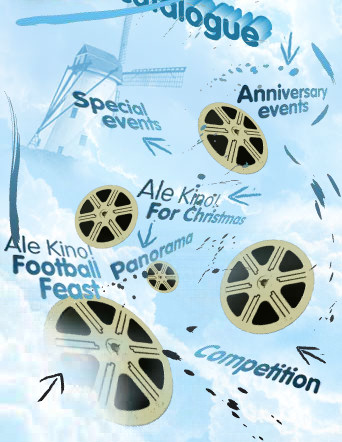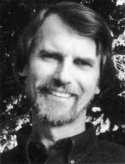
Ale Kino! Hits
 |
I Had a Dream
I had a beautiful dream. Bright, youthful and optimistic. A dream about the power of the Polish film for young people. The dream I have dreamt for a long time. A realistic dream born from private wishes and things once seen. Dream images moved one by one like pictures in an old-fashioned slide projector. The images seemed very real, rich in detail and, at the same time, unrealistically distant, brought back from the recesses of memory: mine, yours, ours; inaccesible like deja vu. Maria Kaniewska walking along a castle hall to meet the audience... Janusz Nasfeter surrounded by autograph hunters... Stanisław Różewicz travelling to Venice to collect Golden Lion for his Birth Certificate (Świadectwo urodzenia, 1961)... Andrzej Munk and Kurt Weber, a cinematographer, with a camera in the streets of Warsaw’s Old Town accompanying young Julia Przyboś, shooting A Walk in the Old City of Warsaw (Spacerek staromiejsk, 1958).
Little Dramas (Małe dramaty, 1960), Coloured Stockings (Kolorowe pończochy, 1960), Argument About Basia (Awantura o Basię, 1959), The Devil from Seventh Grade (Szatan z siódmej klasy, 1960), In Desert and Wildreness (W pustyni i w puszczy, 1973), Please, Mr Elephant (Proszę słonia, 1978) and Bolek and Lolek animated series, our biggest international success.
Is it possibile that Polish films for children and young people were once made by such artists as Władysław Ślesicki, Maria Kaniewska, Wojciech Marczewski, Sławomir Idziak, Antoni Krauze, Juliusz Machulski and Agnieszka Holland? That screenplays used to be written by Tadeusz Różewicz, Kornel Filipowicz, Ludwik Jerzy Kern and Janusz Głowacki? That literary works by Sienkiewicz, Prus, Makuszyński and Brzechwa were successfully adapted for the screen? That the soundtrack for a TV series Leśniewski Family (Rodzina Leśniewskich, 1978) was composed by Czesław Niemen, and that the song Niepewność from the film Trip for One Smile (Podróż za jeden uśmiech, 1971) with lyrics by Mickiewicz was sung by Marek Grechuta? Or that Polish films for children once meant the best quality of European films of this kind?
In my dream, however, the audience is the most important. Young cinemagoers who sit in front of the screen, awaiting the show; children and grandchildren of those who still remember the past successes and know that ‘mcdonaldising’ of children’s imagination is a terrible but treatable illness which has to come to an end. It is not only our problem. It is also the problem of others, as demonstrated by the Festival, which became international years ago and whose audience can now watch films from the most remote parts of the world. Foreigners are also trying to make their own productions…
Suddenly, a phone ringing woke me up. I heard a familiar voice in the receiver: it was Jerzy Moszkowicz, Festival director, inviting me to the silver 25th anniversary of the Poznań event - the next festival edition. So there is still a chance. There is hope. The dream can be dreamt on. The Magic Tree is still alive and waiting for the next spring to bloom. The Ale Kino! Festival and such people as Jerzy Moszkowicz or Andrzej Maleszka remain the stronghold of a beautiful idea. All is not yet lost, I thought. Our cinema industry must just look for new energy, gather strength, focus on what is important, rediscover its former belief that its own Polish audience need new films for children and young people and will come to the cinema if only the filmmakers make an effort. The audience do not know that yet; they have yet to realise it with a little help from the makers of great new film productions we long to see.
Marek Hendrykowski
full professor, the head of the Film and Television Unit at Adam Mickiewicz University in Poznań, the founder of the Poznań School of Film, a member of jury at a number of Poznań Festival editions, an author of numerous books on film, including Polish Feature Films for Children and Young People (Polski film fabularny dla dzieci i młodzieży, 1994) published by the National Centre of Art for Children and Young People.